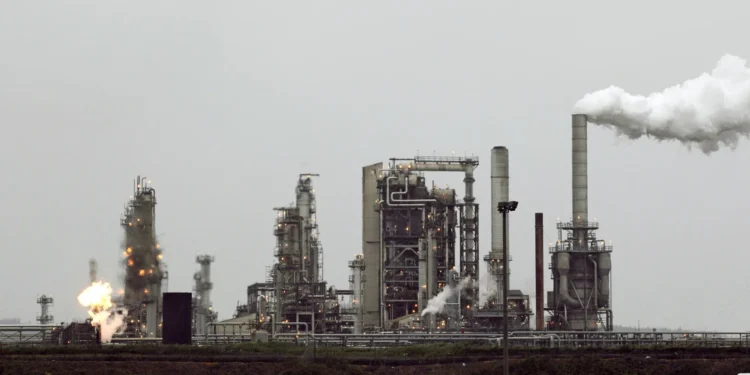Two oil refineries in northwest Washington are facing hefty state penalties after regulators say they failed to properly address thousands of gallons of hazardous, corrosive waste, despite nearly a year of warnings.
The Department of Ecology announced Tuesday that HF Sinclair’s refinery near Anacortes will be fined $1.3 million, while the nearby Tesoro refinery, operated by Marathon Petroleum, faces a $1.4 million penalty. Officials said both facilities neglected safe handling practices for dangerous chemical byproducts from the refining process, a lapse that comes on top of past citations for spills, toxic emissions, and safety breaches.
The Swinomish Tribal Indian Community, located near both refineries, has long warned of risks posed by the industry. Tribal Chairman Steve Edwards said in a statement that any violation involving hazardous waste “could have perilous consequences for our Community’s health and for our Treaty resources,” calling the latest findings both troubling and unexpected.
According to Ecology’s report, an incident at HF Sinclair in fall 2023 allowed oily wastewater to overflow into a containment area. While such areas are meant to capture spills, they are not intended for long-term storage. The sludge reportedly sat there for nearly a year before being removed, at which point crews found the containment liner had been torn. Officials wrote that the long delay “unacceptably increased risks” of waste escaping into the environment.
Tesoro’s problems stretch back further. Inspectors in 2022 flagged a 150,000-gallon pond holding spent sulfuric acid as dangerously corrosive, at times as strong as battery acid. The pond’s acidity needed to be kept in check to protect its liner and prevent contamination. Marathon took nine months to settle on a safer method of handling the waste, Ecology said, and the refinery is still working with the agency to fully remove the remaining residue.
Marathon told Ecology it is cooperating to “resolve this matter,” noting that the pond is now out of use and a closure plan is in the works. HF Sinclair did not respond to a request for comment.
“These facilities handle millions of gallons of hazardous material every day,” said Ecology Northwest Region director Tom Buroker, adding that they have “the expertise, the resources, and the responsibility” to manage waste safely. In both cases, Buroker said, dangerous waste was kept on site far too long, compounding potential harm to people and the environment.
Both plants have been flagged by state and federal agencies in recent years. The EPA labeled HF Sinclair a “Significant Noncomplier” in 2023, while Tesoro was cited earlier this year for major Clean Water Act violations. Tesoro was fined nearly $720,000 in 2016 for safety issues, and a 2010 explosion at the plant killed seven workers. HF Sinclair’s site, previously owned by Shell, released a toxic gas cloud in 2015 that sickened more than 500 people and led to a $191,000 penalty.
The new fines, while large, represent a small fraction of the companies’ earnings, Marathon reported $1.2 billion in net income for the second quarter of 2025, while HF Sinclair reported $208 million for the same period.
Edwards said he appreciates Ecology’s actions and hopes the penalties will prompt significant changes. The agency is still investigating whether either incident caused measurable environmental harm.







